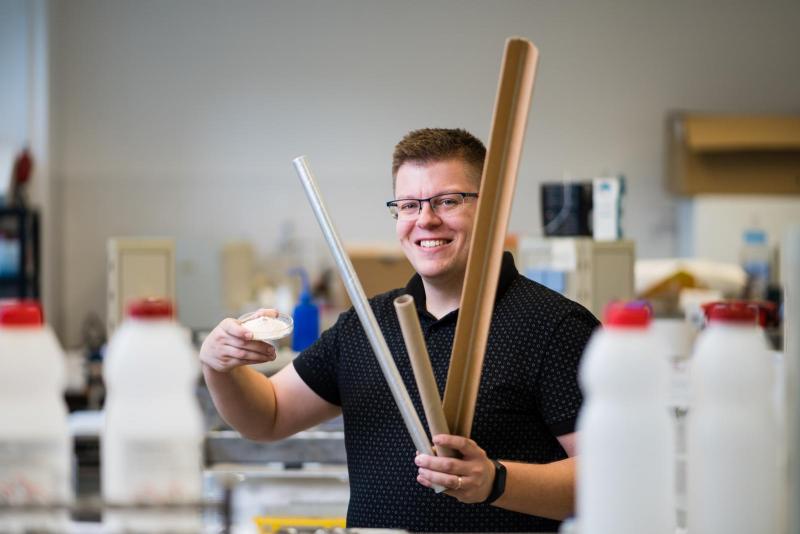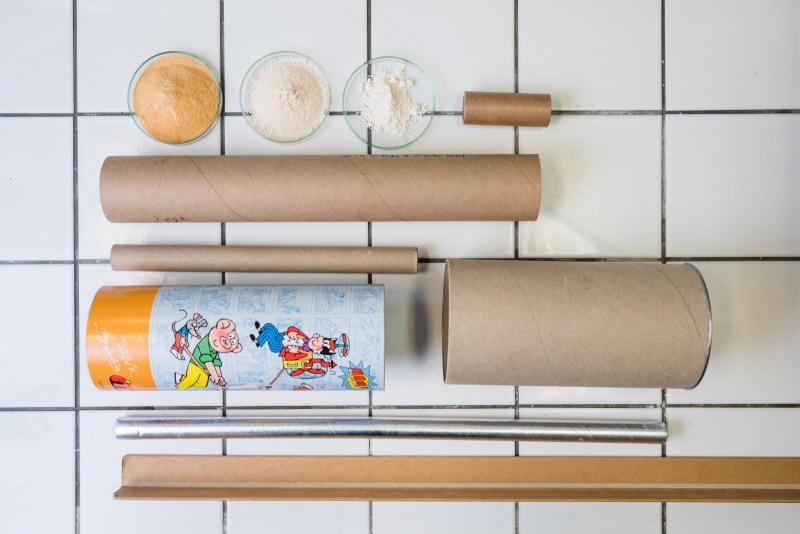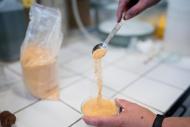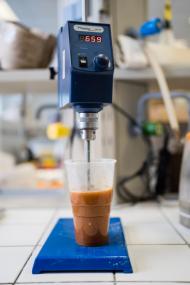Ideas and discoveries
Cheaper, better quality and eco-friendly. FCH BUT researchers create new dextrin adhesive

Dextrin adhesive has been used for decades for the industrial production of paper tubes of all kinds – from toilet paper rolls to food packaging to tubes for wrapping films. Its consumption in the Czech Republic reaches several thousand tonnes per year. Scientists at the Materials Research Centre of the BUT have now developed a new recipe for dextrin adhesive in bulk form – which is both cheaper and more environmentally friendly.
Dextrin is made from potato starch and has been part of liquid adhesives for more than 35 years. “Its disadvantage has always been the unstable quality of the starch, which fluctuated seasonally based on the harvest and affected the strength of the glued tubes. Not only did it create a lot of waste, but it also slowed down the entire industrial production. In addition, harmful biocidal substances had to be used to stabilise the previously used liquid adhesives. We have developed a new system of additives to ensure excellent adhesive performance even with inferior dextrin,” Tomáš Solný from the BUT Materials Research Centre explains.
Solný has been developing and testing eco-friendly adhesives for over 10 years in collaboration with Topcore, a company specialising in the production of adhesives for the paper industry. They have now completed a utility model and several functional samples – most recently a recipe for a bulk dextrin adhesive mixture.
“So far, companies have been producing dextrin adhesives with additives directly in liquid form to guarantee the quality of the final product. Such adhesive contains up to 45% water, which is very uneconomical for transport at the required volume of several tonnes. It is transported to the customer in several tank trucks or IBC containers. Moreover, liquid adhesive has a limited shelf life,” Solný explains.

The new bulk adhesive mix contains no water, so it is only a fraction of the volume and lasts much longer. The manufacturers can mix the adhesive batch they need at the time – saving on transport, storage space and the washing and disinfection of containers used to transport dextrin adhesives.
“The formulas themselves are also environmentally friendly, we currently have 30 of them. They contain less dextrin and are therefore cheaper for the manufacturers. We do not use any toxic biocides, which used to prevent bacterial contamination of the adhesive. The paper tubes can thus be recycled after use and used for further production of industrial paper,” Solný adds.
However, the research and development of dextrin adhesive is not yet over at the Materials Research Centre. “It turns out that thin-walled tubes made of dextrin adhesive are very strong but quite fragile. Dextrin itself has no elastic properties. Therefore, we now want to focus on the development of a new bulk mixture of dextrin adhesive, which would be enriched with elastic natural adhesives with different types of glue or resin substances” Solný outlines further developments.
Recycling solar panels? No yet existent. NEW technology from BUT offers a solution
Cement production can be cheaper and more ecological thank to the recipe from FCH BUT
A lack of hay for horses inspired Joes Jančář to create a smart nutrition for plants
Experiment from FCH BUT shows that bioplastics are not always the greener choice
Nilmore's circular clothing allows you to use the fibre repeatedly

